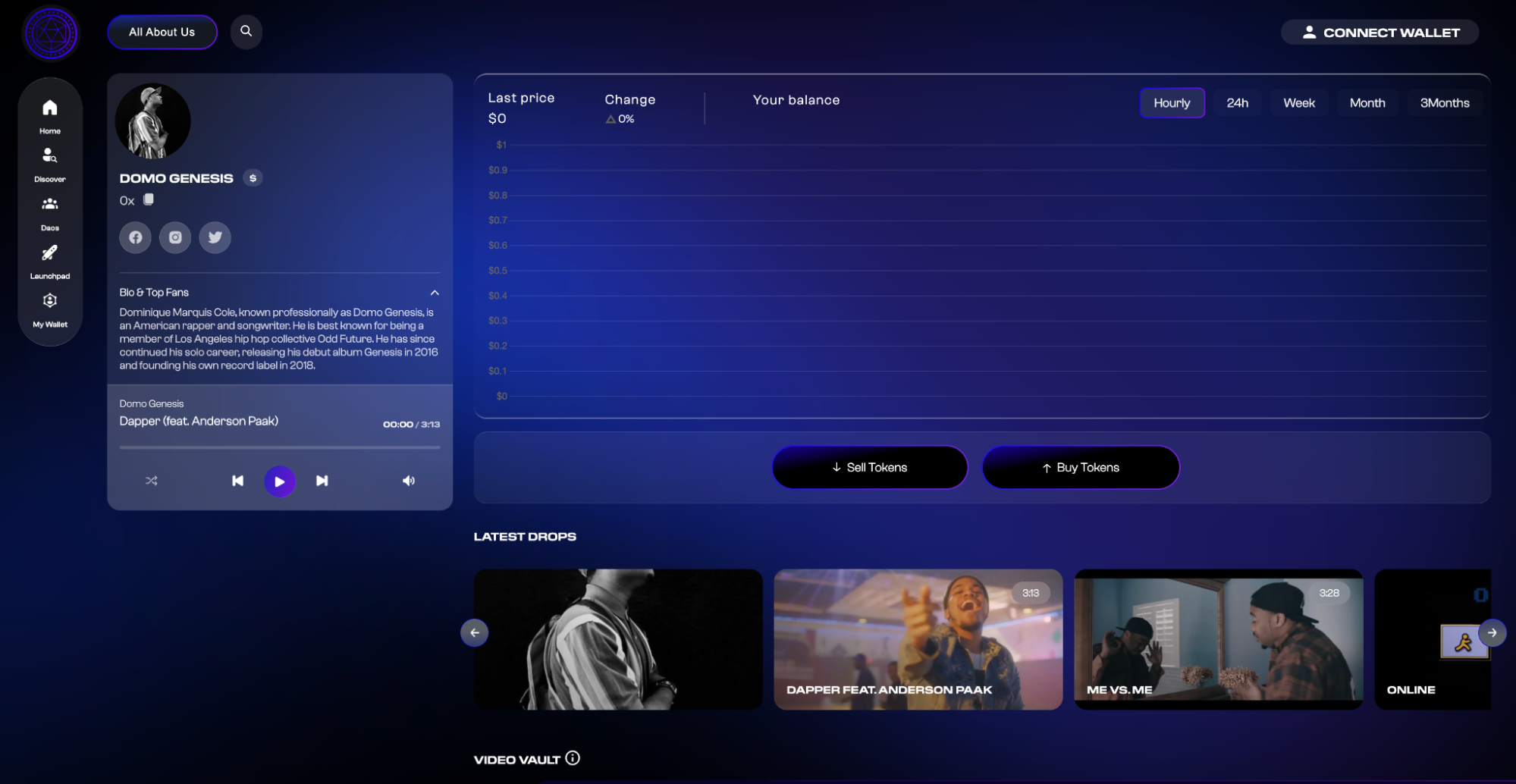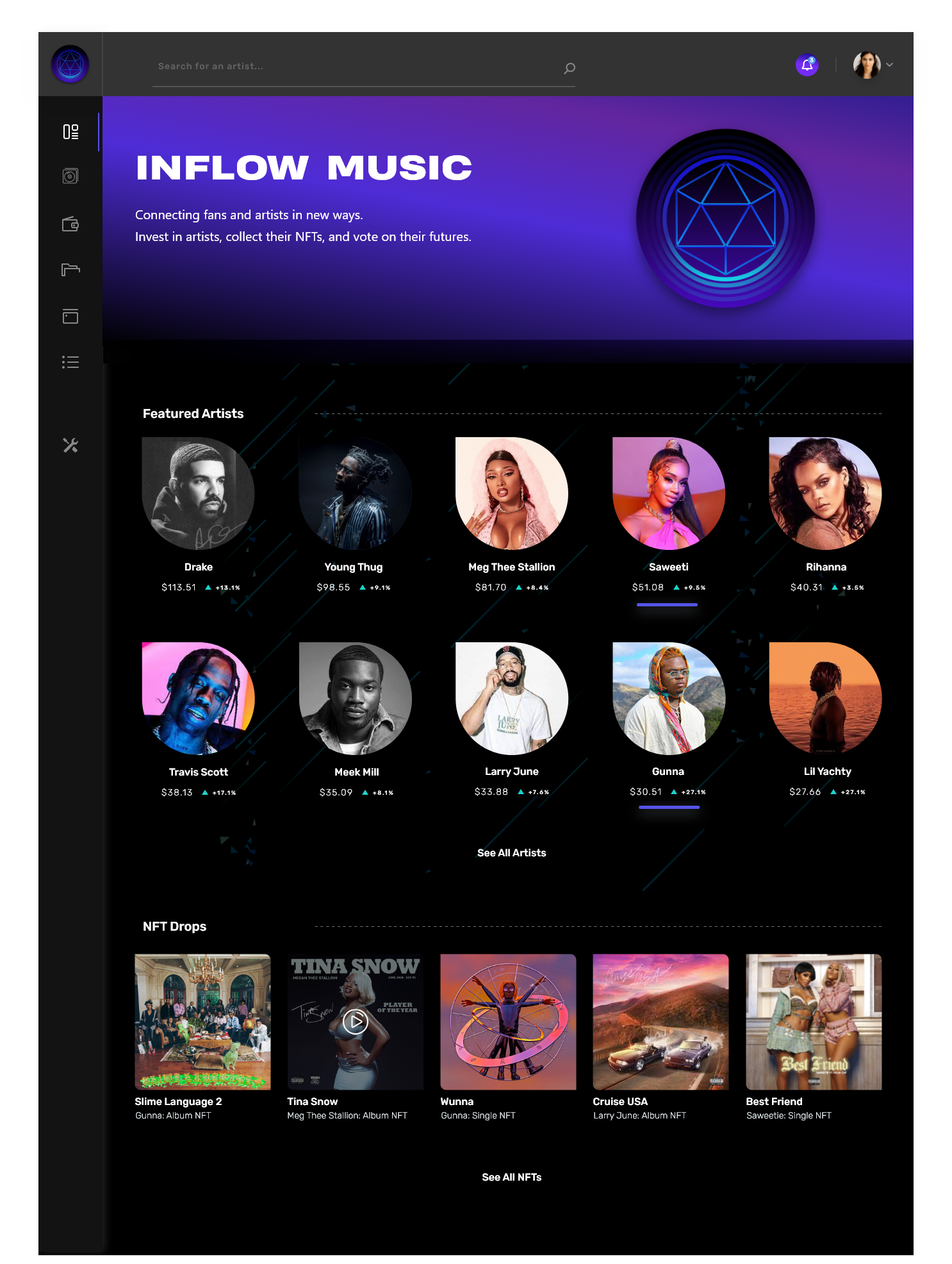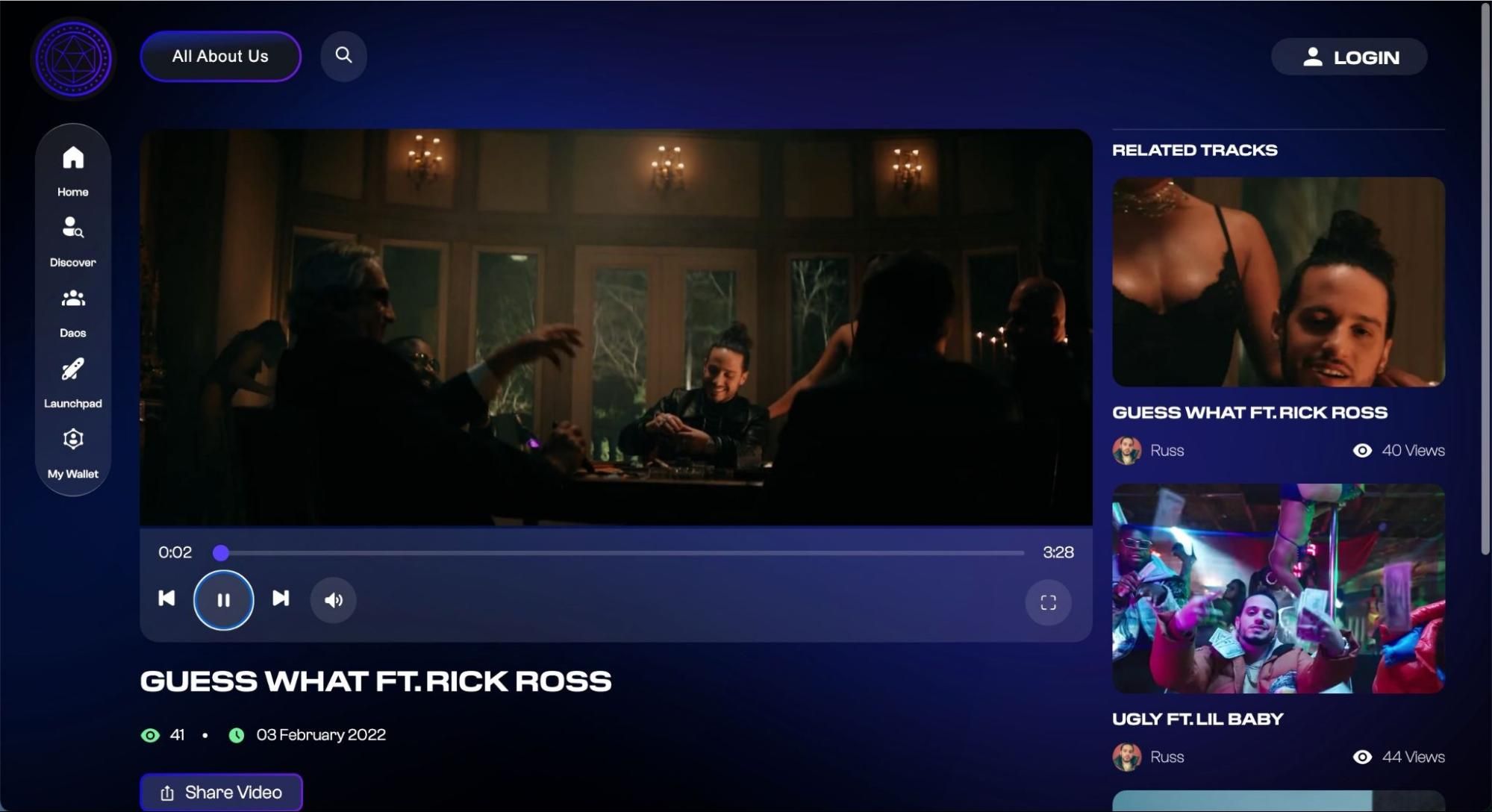How Inflow Created the First Music Platform for the Web3 Economy


About Inflow
Product: Livestream and On-Demand Concert Platform
Location: United States
Website: inflowmusic.io
Fans have historically shown support for their favorite artists by buying records, concert tickets, or merchandise. The allure of streaming platforms didn't change this long-established dynamic.
Even though sales are crucial to any artist's financial well-being, money isn't the only thing that matters to them. Artists also want to engage with their followers in a much closer and direct fashion, which, up until recently, could only be achieved through social media.
Web3 offers a unique opportunity for artists to connect, livestream events, and reward their fans in a way never seen before through the use of tokens and NFTs.
The first company to create a platform that fulfills this promise is Inflow. We sat down with Alexander Yoseph, co-founder and CEO of Inflow, to talk about how their platform is poised to empower artists and fans alike, their story, and how they are doing so far.
Creating the first web3 music platform
Alexander first envisioned Inflow as a platform that allowed musicians, athletes, and content creators to launch their own social tokens and start monetizing their communities.
“As fans, we’re the biggest economic producers in the music industry, but we actually get no type of reward for being a fan, and so crypto lets us do that. A lot of the social token platforms are missing the social aspect, and so that’s what we wanted to bring – a way for you to interact with your favorite creator in our setting, on our platform.”
Inflow enables artists to mint tokens that give fans “access to their livestreams – thanks to Livepeer Studio – their music videos, their songs, their vlogs, interviews, or any type of studio sessions. The first kind of utility that we’re going to give is access to content and experiences.”
He rendered this vision in a white paper he wrote in 2019, and incorporated the company a year later. Afterward, he got into the Tachyon Accelerator, an accelerator for early-stage blockchain and web3 startups backed by ConsenSys and Protocol Labs (the company behind Filecoin and IPFS).
“That really kicked off our journey and solidified us as a key player in the space,” said Alexander.

An experiential music platform for true music fans
Inflow currently allows superstars like Migos and Lil' Baby to create tokens that their fans can use to access:
- Exclusive meet-and-greets
- Special events only accessible by token holders
- Free merchandise
Inflow also allows artists to create DAOs that give fans the power to vote on matters like what artists they should collaborate with.

Not only can artists reward fans for their support, but they can also create two new revenue streams free of intermediaries:
- A 3% fee every time someone buys or sells their token
- The sale of NFTs or royalties from their ownership
For Alexander, delivering unique experiences to token holders came down to video: “When we talk about experiences, video is the closest thing you can get to experiencing somebody, whether it be on a livestream, experiencing music videos or behind-the-scenes footage, or a studio session.”

Going all-in with a web3 stack
During his time in Tachyon Accelerator, Alexander started to look for a web3 provider that enabled video streaming, particularly for live content like concerts and shows.
Alexander and Richard’s first decision was to use Amazon S3, but they soon realized its popularity wasn’t worth its high costs. They tried token gating YouTube and Vimeo videos, but that didn’t work for their users either.
As they scraped for a better solution, Alexander heard one of the founders of Glass Protocol, a video NFT platform, praise Livepeer. That was followed by a second referral by someone from Huddln, an NFT-powered social platform. For the founders, it was crucial to leverage a web3-native tool. “Since we are progressively decentralizing, Livepeer just made sense,” Alexander explained.
Inflow’s web3 stack is made up of “whatever tools that makes us as autonomous and decentralized as possible, but then also, that it is not that hard to implement. I think it’s a mixture of ease of implementation and, “does it align with our core mission of being hands-off?”. We want to exist in the community and be really a tool that is run by the people.”
How Livepeer Studio helped Inflow deliver a unique fan experience
Richard, the CTO, was originally doubtful about trying Livepeer Studio because “he didn’t know what to build—we’re building so many things and he didn’t know how much time this would take.”
However, this feeling soon changed when Richard found that “just from a development standpoint, it’s been really easy to use. He said it works perfectly, and now we’re just getting the video-on-demand stuff ready to go.”
Alexander and Richard found Livepeer Studio ideal for livestreaming, which plays a major part in its value proposition.
“Being able to have this one-on-one conversation, or being able to have this intimate experience with them is very important. Attaching a value to that and basically being rewarded in experience with these tokens and with these livestreams—that’s the first thing that Livepeer Studio is going to be helping us with.”
A second crucial way they are using Livepeer Studio is for on-demand video and token-gating exclusive content. “Music and videos are going to be the core content that’s on our platforms,“ said Alexander. “Token-gating is important as well, too—being able to token-gate, not only with our technology but with the help of your technology.”
The fact that the Livepeer Studio team worked shoulder-to-shoulder with the founders was the final point that convinced them. “We need a team that can hop on calls with us and that’s really important for us,” explained Alexander.
Thanks to Livepeer Studio, the founders are ready to grow while keeping true to Alexander’s original vision. As he put it, “The reason why I started Inflow is because it’s a mixture of two of my passions, music and crypto – music and economics, really. I think creating an option where people could work on their passions is the biggest thing crypto could have –financial freedom for the everyday person.”
Interested in learning more about Livepeer Studio? Join the community on Twitter and Discord.